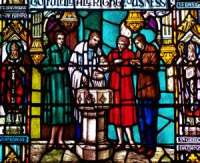Wonderful, what a web site it is! This webpage gives useful data to us, keep it up.
I constantly spent my half an hour to read this
weblog’s content daily along with a mug of coffee.
You could definitely see your enthusiasm in the work
you write. The world hopes for even more passionate writers like you who aren’t afraid to say how they believe. At all times go after your heart.
excellent points altogether, you simply won a new reader.
You need to take part in a contest for one of the highest quality websites on the internet. I will highly recommend this website!
I just want to tell you that I am newbie to blogging and site-building and certainly liked you’re blog site. Likely I’m want to bookmark your website . You absolutely come with beneficial posts. Thanks for revealing your website.
Woah! I’m really enjoying the template/theme of this website. It’s simple, yet effective. A lot of times it’s very difficult to get that “perfect balance” between superb usability and appearance. I must say you’ve done a awesome job with this. Additionally, the blog loads super quick for me on Firefox. Outstanding Blog!
I’m now not positive where you’re getting your info, but great topic. I must spend a while studying much more or working out more. Thank you for excellent information I used to be searching for this information for my mission.
It’s a shame you don’t have a donate button! I’d definitely donate to this brilliant blog!
I guess for now i’ll settle for bookmarking and adding your RSS feed to my Google account.
I look forward to brand new updates and will talk about this website with my Facebook group. Talk soon!
I read this post completely concerning the difference of most up-to-date and preceding technologies, it’s awesome article.
I am genuinely thankful to the owner of this web page who has shared this enormous piece of writing at here.
This is a great A to Z on how to establish a strong online presence! Wonderful info, incredibly newbie-friendly, comprehensive and thorough.
Thanks for sharing your info. I truly appreciate
your efforts and I will be waiting for your next post thanks once again.
This design is incredible! You most certainly know how
to keep a reader entertained... Wonderful job. I really enjoyed what you had to say, and more than that, how you presented it.
Too cool!
Magnificent goods from you, man. I’ve understand your stuff previous to and you are just too great. I actually like what you’ve acquired here, really like what you are stating and the way in which you say it. You make it entertaining and you still take care to keep it wise. I can not wait to read much more from you.
This is actually a terrific site.
My brother suggested I might like this blog.
He was entirely right. This post actually made my day. You can not imagine simply how much time
I had spent for this information! Thanks!
I love it when individuals get together and share opinions. Great site, stick with it!
I just want to mention I am very new to weblog and absolutely loved you’re web-site. Very likely I’m want to bookmark your blog . You really have terrific writings. Thanks for revealing your web site.
Greetings from Ohio! I’m bored to death at work so I decided to browse your site on my iphone during lunch break. I really like the knowledge you present here and can’t wait to take a look when I get home.
I’m amazed at how fast your blog loaded on my phone .. I’m not even using WIFI, just 3G .. Anyhow, amazing blog!
Excellent pieces. Keep writing such kind of information on your blog. Im really impressed by your site.
Hey there, You have done a great job. I will certainly digg it and in my view suggest to my friends. I am sure they will be benefited from this site.
This is very interesting, You are a very skilled blogger.
I’ve joined your rss feed and look forward to seeking more of your great post. Also, I’ve shared your web site in my social networks!
Hello there! I could have sworn I’ve been to this blog before however after checking through some of the post I realized it’s new to me. Anyhow, I’m definitely glad I found it and I’ll be bookmarking and checking back frequently!
Hello! This post could not be written any better! Reading this post reminds me of my old room mate! He always kept talking about this. I will forward this post to him. Fairly certain he will have a good read.
Many thanks for sharing!
What’s Happening i am new to this, I stumbled upon this I have found It absolutely useful and it has aided me out loads. I hope to give a contribution & aid other users like its helped me. Good job.
Hi! I’m at work surfing around your blog from my new iphone! Just wanted to say I love reading your blog and look forward to all your posts! Carry on the outstanding work!
Thanks for ones marvelous posting! I quite enjoyed
reading it, you will be a great author. I will make sure to bookmark your blog and will come back in the future. I want to encourage you to ultimately continue your great writing, have a nice evening!
Can I simply say what a relief to discover somebody that truly understands what they are talking about on the internet. You certainly know how to bring a problem to light and make it important. More and more people need to read this and understand this side of the story.
I was surprised you’re not more popular given that you definitely possess the gift.
I'm amazed, I have to admit. Rarely do I encounter a blog that is equally educative and engaging, and without a doubt, you’ve hit the nail on the head. The problem is something which not enough people are speaking intelligently about. I’m very happy that I stumbled across this during my search for something concerning this.
Simply wished to tell you Now i am glad I stumbled on your site.
I really like looking through an article that can make men and women think. Also, many thanks for allowing for me to comment!
I’m truly enjoying the design and layout of your website. It’s a very easy on the eyes which makes it much more enjoyable for me to come here and visit more often.
Every weekend i used to pay a quick visit this web page, as i want enjoyment, since this site contains in fact fastidious funny material too.
Oh my goodness! Awesome article dude! Thank you.
Hi! Someone in my Facebook group shared this site with us so I came to take a look.
I’m definitely loving the information. I’m book-marking
and will be tweeting this to my followers! Exceptional blog and amazing style and design.
Good site you have here.. It is hard to find good quality writing like yours these days. I really appreciate people like you! Take care!!
I would like to thank you for the efforts you’ve put
in penning this site. I am hoping to see the same high-grade content from you in the future as well. In fact, your creative writing abilities has inspired me to get my very own website now.
Hi I am so delighted I found your blog, I really found you by error, while I was searching on Askjeeve for something else, Nonetheless I am here now and would just like to say kudos for a fantastic post and a all round interesting blog (I also love the theme/design), I don’t have time to go through it all at the moment but I have bookmarked it and also included your RSS feeds, so when I have time I will be back to read a lot more. Please do keep up the great work.
Hey friend, I just wanted to share with you of how your post was worthwhile for me. We were fortunate to take the tips you so generously created and try it. Your website posting really made it simpler for me and I would like to inform your devoted readers how they genuinely have someone who has their thoughts straight. Thank you so much once more for a great article. I’ve book marked this on my favored internet bookmarking web site and I advise everyone else do the exact same.
I’m extremely pleased to discover this great site. I wanted to thank you for ones time for this particularly wonderful read!!
I definitely enjoyed every part of it and I have you book-marked to look at new things on your website.
I’m no longer certain where you’re getting your info, but good topic. I need to spend some time studying more or understanding more.
Thanks for magnificent info I was searching for this information for my mission.
you are in reality a just right webmaster. The web site loading velocity is incredible. It sort of feels that you’re doing any distinctive trick. Furthermore, The contents are masterwork. you have done a wonderful task on this topic!
Unquestionably believe that which you said. Your favorite reason appeared to be on the net the easiest thing to be aware of. I say to you, I certainly get annoyed while people think about worries that they plainly don’t know about. You managed to hit the nail upon the top as well as defined out the whole thing without having side effect, people could take a signal.
Will probably be back to get more. Thanks.
Gnarly post mate, maintain the great work, just shared this with ma friendz.
Hello there! I could have sworn I’ve visited this
website before but after looking at many of the posts I realized it’s new to me. Anyways, I’m certainly delighted I discovered it and I’ll be book-marking it and checking back frequently!
I am genuinely thankful to the owner of this web page who has shared this enormous piece of writing at here.
My spouse and I stumbled over here from a different web address and thought I may as well check things out. I like what I see so now i’m following you. Look forward to looking into your web page again.
Howdy! Someone in my Facebook group shared this website with us so I came to look it over. I’m definitely loving the information. I’m bookmarking and will be tweeting this to my followers! Superb blog and terrific style and design.
Woah! I’m really loving the template/theme of this blog. It’s simple, yet effective. A lot of times it’s challenging to get that “perfect balance” between superb usability and appearance. I must say that you’ve done a great job with this. Also, the blog loads super fast for me on Internet explorer.
Superb Blog!
It’s a pity you don’t have a donate button! I’d definitely donate to this fantastic blog! I suppose for now i’ll settle for bookmarking and adding your RSS feed to my Google account. I look forward to fresh updates and will talk about this blog with my Facebook group. Chat soon!
Hi there! This is my first visit to your blog! We are a team of volunteers and starting a new initiative in a
community in the same niche. Your blog provided us useful information to work on. You have done a wonderful job!
Great article! Thіs is the kіnԁ off infoгmation that should bе shared aгound the web. Shame οn the seek engines fоr no longer positioning thіs publish upper! Come on ovеr and talk over with my web site . Τhank yоu.
I truly appreciate this post. I have been looking all over for this! Thank goodness I found it on Bing. You’ve made my day! Thx again!
Thank you for another great article. Where else may just anybody get that type of information in such a perfect way of writing? I have a presentation next week, and I’m at the look for such information.
Thanks for the sensible critique. Me and my neighbor were just preparing to do a little research on this. We got a grab a book from our area library but I think I learned more from this post. I am very glad to see such great information being shared freely out there.
I would like to express appreciation to this writer just for rescuing me from this challenge. Because of looking out through the the web and seeing suggestions which are not helpful, I believed my entire life was gone. Existing devoid of the solutions to the problems you have fixed all through your website is a crucial case, and those that would have in a negative way damaged my career if I had not noticed your web blog. Your own expertise and kindness in handling all the pieces was helpful. I am not sure what I would’ve done if I had not come across such a thing like this. I am able to now look ahead to my future. Thanks a lot very much for your expert and amazing help. I won’t hesitate to endorse your blog to any person who will need direction on this situation. (Gospelbbq is humbled and deeply touched by these comments--blessings)
Together with every little thing which seems to be building throughout this subject material, all your perspectives are rather radical. On the other hand, I beg your pardon, because I do not give credence to your entire idea, all be it exhilarating none the less. It would seem to everyone that your commentary are generally not completely justified and in actuality you are generally yourself not really completely confident of the point. In any case I did enjoy reading through it.
Hi, I happened to find brilliant notions . Keep it up!
Definitely imagine that which you stated. Your favorite justification seemed to be at the web the simplest thing to be mindful of. I say to you, I definitely get irked while other people think about concerns that
they plainly do not recognize about. You controlled to hit the nail upon the highest as well as defined out the whole thing without having side-effects , other folks can take a signal.
Will likely be again to get more. Thank you
Very excellent web page thanks so much for the time in writing the posts for all of us to learn about.
Magnificent goods from you, man. I understand your stuff previous to and you are just extremely wonderful. I actually like what you have acquired here, certainly like what you are stating and the way in which you say it. You make it enjoyable and you still care for to keep it smart. I can’t wait to read much more from you. This is really a wonderful web site.
You have ten of the best fingers I have ever seen!
Its like you read my mind! You seem to know a lot about this, like you wrote the book on it or something. I think that you can do with a few pics to drive the message home a little bit, but instead of that, this is excellent blog. A great read. I will certainly be back.
Can I simply just say what a comfort to uncover an individual who really knows what they are discussing online. You certainly understand how to bring a problem to light and make it important. More people should look at this and understand this side of your story. I can’t believe you are not more popular since you surely possess the gift.
Very nice post. I just stumbled upon your weblog and wanted to say that I have really enjoyed browsing your blog posts. In any case I will be subscribing to your feed and I hope you write again very soon!
Greetings I am so delighted I found your blog page,
I really found you by error, while I was researching on Digg for something else, Anyhow I am here now and would just like to say thanks for a tremendous post and a all round interesting blog (I also love the theme/design), I don’t have time to look over it all at the moment but I have book-marked it and also added in your RSS feeds, so when I have time I will be back to read much more, Please do keep up the awesome job.
Dude.. I’m not substantially into studying, but somehow I obtained to undergo lots of short article content material together with your web site. Its wonderful how attention-grabbing it really is for me to go to you pretty frequently.
Hi, I found your website after i was hunting Bling for web-sites linked to this content material. I planned to explain to you, your internet site is good. I like the structure much too, its good. I haven’t got time now to completely read your site but We have bookmarked it and i also signed up on your RSS feed. I will be back again in a day or two. Thanks for any fantastic web site.
Great article, exactly what I was looking for.
I have been exploring for a bit for any high-quality articles or weblog posts on this kind of space . Exploring in Yahoo I eventually stumbled upon this
web site. Studying this information So i am glad to show that I’ve an incredibly good uncanny feeling I came upon just what I needed. I most for sure will make sure to do not omit this site and give it a look on a continuing basis.
Hello, just wanted to tell you, I loved this blog post.
It was funny. Keep on posting!
It’s not my first time to visit this web site, i am browsing this site daily and obtain fastidious facts from here every day.
I enjoyed this piece of writing. I hope you keep writing, I’ll be coming back time and time again. Thanks comrade.
Thanks to my father who told me concerning this blog, this website is in fact amazing.
Hey there! I simply would like to give you a big thumbs up for your great info you have here on this post. I will be coming back to your web site for more soon.
This post is priceless. How can I find out more?
I read this post completely concerning the difference of most up-to-date and preceding technologies, it’s awesome article.
My spouse and I stumbled over here different web address and thought I may as well check things out. I like what I see so now i am following you. Look forward to looking into your web page repeatedly.
Hello I am so thrilled I found your blog, I really
found you by error, while I was searching on Yahoo for something else, Anyhow I am here now and would just like to say cheers for a tremendous post and a all round thrilling blog (I also love the theme/design), I don’t have time to browse it all at the minute but I have bookmarked it and also included your RSS feeds, so when I have time I will be back to read more, Please do keep up the superb b.
When someone writes an post he/she keeps the idea of a user in his/her mind that how a user can understand it. Thus that’s why this post is amazing.
Thanks!
Saved as a favorite, I like your website!
Very good post! We will be linking to this particularly great article on our website. Keep up the good writing.
Excellent blog post. I definitely love this site.
Thanks!
Hey from across the ocean! This is just what I was hunting for, and you got it right. Thanks
Howdy very cool website!! Man ... Beautiful ... Wonderful. I’ll bookmark your blog and take the feeds additionally?
I’m satisfied to find a lot of helpful info right here within the publish, we want to work out more strategies on this regard, thanks for sharing. . .
Hey there! I simply would like to give you a big thumbs up for your great info you have here on this post. I will be coming back to your web site for more soon.
You are so interesting! I do not think I’ve read something like that before. So good to find another person with genuine thoughts on this topic.
Seriously... many thanks for starting this up. This web site is one thing that is needed on the web, someone with some originality!
It’s going to be finish of mine day, but before end I am reading this fantastic post to improve my knowledge.
Hello there, You’ve done an incredible job. I’ll definitely digg it and personally suggest to my friends. I am confident they’ll be benefited from this site.
You ought to take part in a contest for one of the most
useful sites on the internet. I am going to highly recommend this web site!
I am not a Christian and do not have a church going lifestyle. I am however a believer and unshakable faith in my creator. Just thought it was nice to find out about the God particle and how it answers the verse in Isaiah about God holding Everything together in His hands. Including the vast universe….
Hi, just wanted to mention, I loved this post.
It was inspiring. Keep on posting!
Its like you read my mind! You seem to know a lot about this, like you wrote the book on it or something.
I think that you can do with a few pics to drive the message home a bit, but other than that, this is excellent blog. An excellent read. I will definitely be back.
I do not even know how I ended up here, but I thought this post was great. I do not know who you are but certainly you’re going to a famous blogger if you aren’t already. Cheers!
Excellent goods from you, man. I’ve take into account your stuff previous to and you’re just extremely excellent. I actually like what you have obtained here, certainly like what you are saying and the best way during which you say it. You’re making it entertaining and you continue to take care of to keep it wise.
I cant wait to learn far more from you. That is actually a wonderful website.
An interesting discussion is definitely worth
comment. I believe that you need to write more about this subject matter, it might not be a taboo matter but typically people do not discuss such subjects.
To the next! Kind regards!!
Hurrah! Finally I got a blog from where I be capable
of really obtain useful information regarding my study and knowledge.
Generally I do not learn article on blogs, however I wish to say that this write-up very pressured me to try and do so! Your writing taste has been surprised me. Thank you, very great article.
My partner and I stumbled over here by a different web page and thought I should check things out. I like what I see so i am just following you. Look forward to
looking over your web page again.
I’m not that much of a online reader to be honest but your sites really nice, keep it up! I’ll go ahead and bookmark your website to come back in the future. Cheers!
Having read this I thought it was rather informative. I appreciate you spending some time and energy to put this information together. I once again find myself personally spending a significant amount of time both reading and commenting. But so what, it was still worthwhile!
Generally I do not learn article on blogs, however I wish to say that this write-up very pressured me to try and do so! Your writing taste has surprised me. Thank you, very great article.
After looking at a number of the blog posts on your website, I honestly appreciate your technique of blogging. I saved it to my bookmark webpage list and will be checking back soon. Please check out my web site too and let me know how you feel.
Good day I am so happy I found your site, I really found you by accident, while I was browsing on Yahoo for something else, Anyhow I am here now and would just like to say thank you for a incredible post and a all
round thrilling blog (I also love the theme/design), I don’t have time to read it all at the minute but I have book-marked it and also added in your RSS feeds, so
when I have time I will be back to read much more, Please do keep up the excellent job.
You’re actually a excellent webmaster. The web site loading velocity is incredible. It sort of feels that you’re doing any unique trick.
Furthermore, The contents are masterwork.
You have done an excellent process on this topic!
You're so cool! I don't suppose I've read anything like this before. So nice to search out any individual with some original thoughts on this subject. Really thank you for starting this up. This website is one thing that is wanted on the web, Somebody with a bit of originality. Useful job for bringing something new to the internet!
Insightful article, I’ve been looking for info on the question of why missionary endeavors in Japan do so poorly. One correction: the Gospel first entered Japan in the 17th century with Francis Xavier, not the 19th. I don’t know what your thoughts on the Catholic church are, but I suppose this was just an oversight.
What difference does it make to line LGBT up for a parade on St. Patrick’s Day versus having them on the same planet all the time? Jesus said that wheat and weeds will grow together until the harvest. We are not the harvesters either. We need to allow God to be God and not interfere with God’s workings. We always identify ourselves with the “wheat” and the saved and the holy and the faithful. We have to watch holding ourselves above others and holding everyone else in contempt.
Gospelbbq replied:
Allow God? …Not interfere with God’s workings? God is God and by his love He has chosen to work through us, empowering His kingdom people, by the Holy Spirit to advance the gospel and teach nations. Blessings…thanks for stopping by and commenting.
My dream retirement is to never must deal together with the cold of winter or heat of summer. An A-Frame in Vermont along with a cottage by the sea near Savannah.
Hurrah! In the end I got a weblog from where I know how to in fact obtain helpful data regarding my study and knowledge.
I am always looking online for posts that can help me. Thx!
I was looking at some of your blog posts on this internet site and I believe this internet site is real informative ! Keep on posting.
This is such a superior idea. A friend of mine sent me your weblink. It’s such a very good way to engage readers offline and get physical mail which everyone loves. I may really have to do this after my blog is up and running a bit more.
I am sure this article has touched all the internet people, its really really fastidious post on building up new weblog.
Only a smiling visitor here to share the love (:, btw outstanding style and design.
Rattling fantastic visual appeal on this site, I’d value it 10 10.
This website was… how do you say it? Relevant!! Finally I have found something that helped
me. Cheers!
Woah! I’m really enjoying the template/theme of this website. It’s simple, yet effective. A lot of times it’s very difficult to get that “perfect balance” between superb usability and appearance. I must say you’ve done a awesome job with this. Additionally, the blog loads super quick for me on Firefox. Outstanding Blog!
I think the admin of this site is genuinely working hard in support of his web site, as here every stuff is quality based information.
Wow, that’s what I was exploring for, what a information! existing here at this weblog, thanks admin of this web site.
Very descriptive article, I enjoyed that a lot. Will there be a part 2?
Hi there, I check your blogs daily. Your humoristic style is awesome, keep doing what you’re doing!
Usually I do not learn post on blogs, but I would like to say that this write-up very compelled me to try and do so! Your writing style has been surprised me. Thanks, quite great article.
Appreciating the time and energy you put into your site and detailed information you provide.
It’s awesome to come across a blog every once in a while that isn’t the same out of date rehashed information. Excellent read! I’ve saved your site and I’m adding your RSS feeds to my Google account.
Hi there, You’ve done a fantastic job. I will definitely digg it and personally recommend to my friends. I’m confident they’ll be benefited from this website.
I blog often and I seriously thank you for your
content. The article has truly peaked my interest.
I’m going to bookmark your site and keep checking for new details about once a week.
I subscribed to your RSS feed as well.
I’m impressed, I have to admit. Rarely do I encounter
a blog that’s both equally educative and engaging, and without a doubt, you’ve hit the nail on the head. The problem is something that too few men and women are speaking intelligently about. Now i’m very happy I came across this during my hunt for something regarding this.
Very rapidly this site will be famous among all blog visitors, due to it’s good posts.
I have been browsing online more than 3 hours these days, yet I never found any interesting article like yours. It’s pretty price sufficient for me. In my view, if all website owners and bloggers made just right content material as you probably did, the net shall be much more helpful than ever before.
Hey There. I found your blog using msn. This is an extremely well written article. I will make sure to bookmark it and come back to read more of your useful information. Thanks for the post. I’ll definitely return.
Hello! ӏ’m at work browsing your blog fгom my neѡ iphone! Jսst wanted to say I love reading yoսr blog and look forward to all youг posts! Cаrry on the fantastic work!
Thanks for this post, I am a big big fan of this internet site would like to continue updated.
Hey there! I’ve been following your site for some time now and finally got the bravery to go ahead and give you a shout out from New Caney Texas! Just wanted to mention keep up the fantastic job!
Some really excellent blog posts on this internet site, appreciate it for contribution.
Thank you for sharing excellent informations. Your site is so cool. I am impressed by the details that you have on this website. It reveals how nicely you perceive this subject. Bookmarked this web page, will come back for extra articles. You, my pal, ROCK! I found simply the info I already searched everywhere and just could not come across. What a great web site.
Great wordpress blog here.. It's hard to find quality writing like yours these days. I really appreciate people like you! take care.
I have recently started a website, the information you provide on this web site has helped me greatly. Thanks for all of your time & work.
Very interesting information! Perfect , just what I was looking for! “We are shaped and fashioned by what we love.” by Johann von Goethe.
Your style is so unique in comparison to other folks I’ve read stuff from. I appreciate you for posting when you have the opportunity, Guess I’ll just book mark this site.
A lot of of what you claim happens to be surprisingly accurate and it makes me ponder why I hadn’t looked at this in this light previously. Your piece really did turn the light on for me personally as far as this specific subject matter goes. Nonetheless there is just one point I am not necessarily too cozy with so whilst I try to reconcile that with the actual main theme of your point, permit me observe exactly what the rest of the visitors have to say.Well done.
My partner and I absolutely love your blog and find nearly all of your post’s to be just what I’m looking for. Would you offer guest writers to write content for you? I wouldn’t mind creating a post or elaborating on a number of the subjects you write related to here. Again, awesome weblog!
Hi to all, it’s actually a good for me to visit this web site, it consists of priceless Information.
bookmarked!!, I love your website!
Simply wish to say your article is as surprising.
The clarity to your post is simply cool and i can assume you’re a professional on this subject. Well with your permission let me to take hold of your feed to stay updated with forthcoming post. Thanks one million and please keep up the gratifying work.
Good day very nice website!! Guy .. Beautiful .. Wonderful ... I will bookmark your site and take the feeds additionally.
Great items from you, man. I’ve be aware your stuff previous to and you’re just extremely fantastic.
I really like what you’ve got here, certainly like what you are saying and the way in which you are saying it.
You are making it entertaining and you still take care of to stay it sensible. I cant wait to read far more from you. This is actually a wonderful web site.
What’s up, after reading this remarkable paragraph i am as well cheerful to share my experience here with colleagues.
Very good post. I’m dealing with many of these issues as well...
Way cool! Some very valid points! I appreciate you penning this write-up plus the rest of the website is extremely good.
The write-up is in reality the excellent on this worthy topic. I match in with your conclusions and looking forward to your coming updates. Just saying thanks won’t just be sufficient, for that fantastic clarity in your writing. I’ve grabbed your rss feed to remain informed of any updates. Gratifying perform and considerably
success inside your business dealings!
This was a fantastic study. Thank you for sharing it about! Nowadays the web is full of poor content however, there’s no doubt which you simply spent long by editing this post. Again, appreciate your time as well as your efforts!
Awesome article.
Hey there! This is my first visit to your blog!
We are a team of volunteers and starting a new
project in a community in the same niche. Your blog provided us valuable information to work on. You have done a extraordinary job!
Hello, I read your blog daily. Your story-telling style is witty, keep up the good work!
I couldn’t refrain from commenting. Perfectly written! (The Unity of the Old and New Testaments)
Everything is very open with a clear description of the challenges. It was definitely informative. Your site is extremely helpful. Thanks for sharing!
This website really has all the information and facts I needed concerning this subject and didn’t know who to ask.
Greetings! Very useful advice in this particular post!
It is the little changes that make the greatest changes.
Many thanks for sharing!
Thanks for your personal marvelous posting!
I seriously enjoyed reading it, you may be a great author. I will make certain to bookmark your blog and will come back sometime soon. I want to encourage you to definitely continue your great work, have a nice weekend!
Hi, I check your new stuff on a regular basis.
Your humoristic style is witty, keep doing what
you’re doing!
Touche. Solid arguments. Keep up the good spirit.
 Today’s Anti-Capitalists Are Closer to Fascism Than They Think
Today’s Anti-Capitalists Are Closer to Fascism Than They Think
 The best way to understand the anti-capitalistic mentality of fascism—and how close the arguments of contemporary anti-capitalists are to those of Benito Mussolini—is to read Mussolini’s 1932 essay titled “The Doctrine of Fascism [7],” written together with Giovanni Gentile [8] (the acknowledged philosophical ideologue of fascism).
The best way to understand the anti-capitalistic mentality of fascism—and how close the arguments of contemporary anti-capitalists are to those of Benito Mussolini—is to read Mussolini’s 1932 essay titled “The Doctrine of Fascism [7],” written together with Giovanni Gentile [8] (the acknowledged philosophical ideologue of fascism).
 is to belittle freedom and classical-liberalism. In the paragraph titled Paragraphs are not titled in the original version: titles have been added to make the essay more readable. “Rejection of Economic Liberalism – Admiration of Bismarck,” Gentile and Mussolini write that “fascism is definitely and absolutely opposed to the doctrines of [classical] liberalism, both in the political and the economic sphere.” Doesn’t that have a familiar ring? Is it so different from the calls of many leftists for rethinking neo-liberalism and capitalism?
is to belittle freedom and classical-liberalism. In the paragraph titled Paragraphs are not titled in the original version: titles have been added to make the essay more readable. “Rejection of Economic Liberalism – Admiration of Bismarck,” Gentile and Mussolini write that “fascism is definitely and absolutely opposed to the doctrines of [classical] liberalism, both in the political and the economic sphere.” Doesn’t that have a familiar ring? Is it so different from the calls of many leftists for rethinking neo-liberalism and capitalism? A couple of paragraphs later (“The Absolute Primacy of the State”), the two fascists—commenting upon what they believed to be the epitomic failure of capitalism, namely the 1929 world recession—assert that economic crises “can only be settled by State action and within the orbit of the State.” Does that differ so much from the advocacy of contemporary “liberals” (better: social democrats) for interventionistic policies and their attempts to put capitalism under stricter governmental control?
A couple of paragraphs later (“The Absolute Primacy of the State”), the two fascists—commenting upon what they believed to be the epitomic failure of capitalism, namely the 1929 world recession—assert that economic crises “can only be settled by State action and within the orbit of the State.” Does that differ so much from the advocacy of contemporary “liberals” (better: social democrats) for interventionistic policies and their attempts to put capitalism under stricter governmental control? its activities to recording results” stemming from economic dynamics, instead of “directing the game and guiding the material and moral progress of the community.” Where, again, is the difference from leftists promoting greater interventionism? Or calling for a bigger government, able to steer markets so as to foster their own idea of social justice?
its activities to recording results” stemming from economic dynamics, instead of “directing the game and guiding the material and moral progress of the community.” Where, again, is the difference from leftists promoting greater interventionism? Or calling for a bigger government, able to steer markets so as to foster their own idea of social justice? The viscerally anti-individualistic philosophical approach of fascism is clearly laid out throughout the whole essay. For instance, in the paragraph appropriately titled “Rejection of Individualism and the Importance of the State,” the fascist ideology is explicitly labeled as “anti-individualistic,” insofar as fascism “stresses the importance of the State and accepts the individual only in so far as his interests coincide with those of the State.”
The viscerally anti-individualistic philosophical approach of fascism is clearly laid out throughout the whole essay. For instance, in the paragraph appropriately titled “Rejection of Individualism and the Importance of the State,” the fascist ideology is explicitly labeled as “anti-individualistic,” insofar as fascism “stresses the importance of the State and accepts the individual only in so far as his interests coincide with those of the State.”
 As a matter of fact, the idea that a state should not passively accept the outcomes of freely chosen economic interactions and voluntary exchanges is widely held by modern (leftist) anti-capitalists. Analogously, in the last lines of the paragraph titled “Rejection of Economic Liberalism – Admiration of Bismarck,” Mussolini and Gentile blame classical liberalism for the “agnosticism it professed in the sphere of economics and…in the sphere of politics and morals.”
As a matter of fact, the idea that a state should not passively accept the outcomes of freely chosen economic interactions and voluntary exchanges is widely held by modern (leftist) anti-capitalists. Analogously, in the last lines of the paragraph titled “Rejection of Economic Liberalism – Admiration of Bismarck,” Mussolini and Gentile blame classical liberalism for the “agnosticism it professed in the sphere of economics and…in the sphere of politics and morals.”























































































You must be logged in to post a comment.